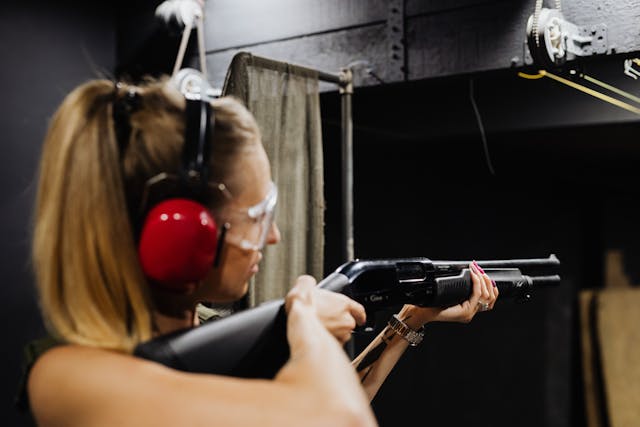The Legal Ages for Buying a Gun in the US
At what age can you buy a gun? The rules differ from state to state because legislators consider many things before passing a law. Generally, all states allow people to buy a gun once they reach 21 years old. At the federal level, the law does not expressly state an age limit. It states that the person must be at least 18 years old. This loophole is what has elevated heated debates lately. The limitation you have is that you cannot buy a gun based on federal law because you're bound by state law. The states provide finer details limiting the age to 18 years for shotguns and rifles. Under the GCA of 1968, you can buy a handgun at the age of 21 years and above. It is your responsibility to understand the requirements of your state. You could be required to learn to shoot through several gun lessons before buying. If you are the student's age, balance the gun lessons with your school tasks. Reliable online professionals on EduBirdie get started with a simple command from you that says do my homework as per the instructions herein.’ It’s as simple as that. This keeps you on track in every situation. How old do you have to be to own a firearm? The right to own a gun in the US is found in the Second Amendment published in 1791. You cannot use this law alone to claim your right to owning or buying a gun. Every state has established strict gun ownership laws making the entire system complicated. The Second Amendment has lately become a big contentment issue stemming from diverse interpretations. The rate of fresher students buying guns has increased lately and the reasons for this differ. Most buy to protect themselves but others also buy for recreational sports. Schools remind students to understand the responsibility that comes with ownership. They should take gun lessons and write papers to learn to shoot and gain other gun-specific knowledge. Hire someone at https://papersowl.com/ to do the homework when you need help. Top writers help them keep school performance high. The expert academic writers are always available for every student irrespective of the subject and background. The driving factor for law disparities has been the rising cases of gun violence among the youth. Another issue has been the threat of violent robbery and terrorism possibility. Legislators at federal and state levels have had conflicting arguments. Some claim arming citizens boosts security while others say it is retro-productive. An important law to note is the Gun Control Act (GCA) allowing you to own a gun at 18 years old. This act limits the type you can own to a shotgun or rifle. It also allows you to buy ammunition for the two firearms. Buying a gun in any state is not straightforward even if you have reached the student age of 18 years. There is a process involving approvals including mental health in many states.
Gun laws do not conflict between states and the federal government but differ significantly. Understanding the differences benefits you and protects you from becoming a lawbreaker. These laws explain how to get a gun, protect, and use it. Federal law forms the overall or baseline framework while state law provides an implementation framework. The differences are based on the following legal provisions:
* Processes of applying for and receiving licenses and permits. States significantly differ in the legal age for owning a gun. Some restrict at 21 regardless of gun type or ammunition while others are flexible. States like California, Delaware, Hawaii, Maryland, and Iowa restrict the age to 21 years. Connecticut, Massachusetts, New York, and New Jersey provide some flexibility. In New York, You can buy a handgun or semiautomatic gun at the age of 21 and a rifle at 18. Arizona, Kentucky, and Alabama allow buying a gun at 18 years old. What is the argument behind these differences? This culture to date views guns as tools and not weapons and denying the people this right is counterproductive. Citizens are viewed as independent entities but things began changing recently. The rate of gun crime has been high in states like New York, California, and Illinois. In some states, liberalizing guns has led to drastic crime reduction. Each state creates its laws based on the prevailing circumstances like crime rate and federal law. Some citizens file court cases concerning gun laws in their state which often lead to changes in law. Arguments in such cases revolve around age restrictions, use, and gun sales. How to get a gun in the Us Your first step should be to search and understand current gun laws in your state. You can get this information from your state’s official website or popular legal sites. Consider visiting a lawyer for legal advice and application processes. Follow the right procedures and take gun lessons to learn how to shoot. Gun laws in the US are complicated due to the differing interpretations at the federal and state level. You are allowed to own a gun by law but it is your responsibility to understand state and federal laws. There are active debates around age restrictions due to rising gun crime involving young people. The current frameworks might change in the future but citizen responsibility will not change. Author’s Bio Charlie Kenney is a champion writer in social and global issues that need to be addressed by governments and citizens together to bring around positive changes. His work as a blogger, academic writer, volunteer and social worker is noteworthy because of the full-scale effort he puts in. His mastery in this area is really second to none.
|
| Copyright 2023 | Ballistics101.com | All rights reserved |

